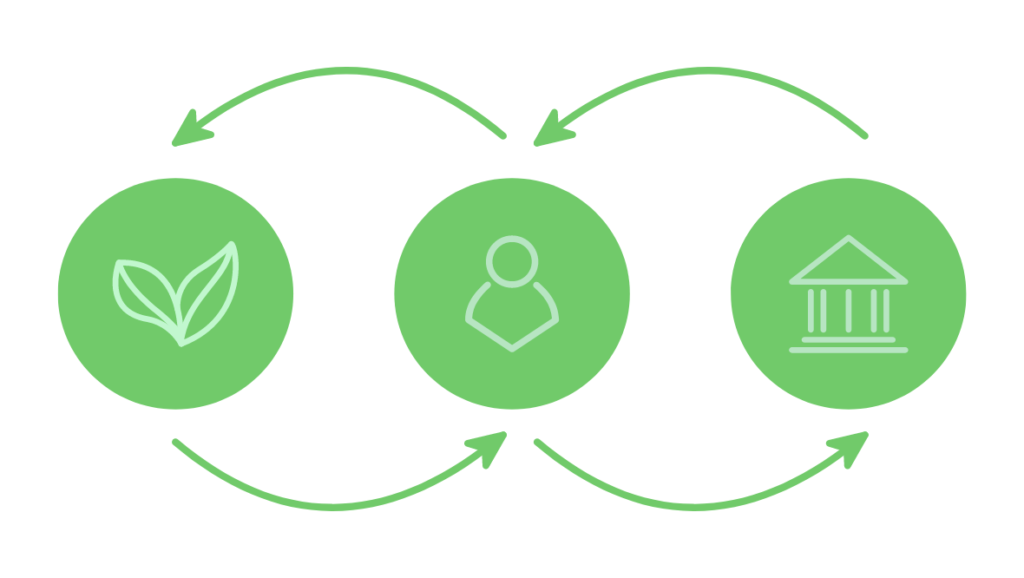SMEs and ESG: Navigating the Path to Responsible Business

Explore practical ESG strategies tailored for SMEs, uncovering how small and medium-sized businesses can incorporate responsible practices for lasting impact.
The importance of awareness and conscious effort made towards incorporating environmental, social, and governance (ESG) practices into their operations is becoming increasingly crucial for SMEs. In the contemporary business environment, stakeholders, including investors, customers, and employees, place significant value on sustainable and ethical practices, making the integration of ESG principles and practices into operations a competitive advantage.
ESG defines a spectrum of factors that measure a company’s impact on the world beyond financial metrics. The Cambridge Dictionary defines ESG as a business model that “a set of ideas or policies that consider the effects on the environment and on society of how a business operates, for example when choosing investments or when reporting on the activities of the business”
This article provides an understanding of ESG from an SME perspective alongside tailored actionable strategies for incorporating ESG practices. From understanding the core components of ESG to implementing practical approaches, this article helps guide SMEs on a path toward responsible business practices.

Understanding ESG and Its Pillars
ESG, an acronym for Environmental, Social, and Governance, represents a holistic approach to responsible business conduct. It encompasses a company’s impact on the environment, its commitment to social responsibility, and the quality of its corporate governance practices.
Environmental
The environmental pillar focuses on a company’s impact on the environment and the practices it undertakes to minimize it. This includes:
- Energy efficiency and renewable energy: Reducing energy consumption and transitioning to renewable energy sources
- Resource conservation: Minimizing the use of natural resources and promoting sustainable sourcing and waste management practices
- Climate change mitigation: Addressing climate change through emissions reduction strategies and carbon offsetting initiatives
Social
The social pillar emphasizes a company’s responsibility to its employees, customers, and the communities in which it operates. This includes:
- Ethical labor practices: Ensuring fair wages, safe working conditions, and respect for human rights in the supply chain
- Diversity and inclusion: Creating a workplace that is inclusive and representative of the communities served
- Community engagement: Supporting social causes and initiatives that benefit the communities in which the company operates
Governance
The governance pillar addresses a company’s internal control processes, ethical standards, and commitment to transparency. This includes:
- Strong corporate governance: Establishing a robust board of directors, clear ethical guidelines, and effective risk management practices
- Accountability and transparency: Providing accurate and timely information to stakeholders, including financial reports, sustainability reports, and corporate social responsibility initiatives
- Compliance with laws and regulations: Adhering to all applicable laws and regulations related to environmental protection, labor standards, and corporate governance

Why ESG is Crucial for SMEs
Today, SMEs are recognizing that ESG considerations go beyond corporate responsibility—they are integral to resilience, reputation, and long-term success.
- Prioritizing environmental impact ensures sustainable practices, essential for mitigating climate risks.
- Social factors, like fair labor practices and community engagement, foster positive relationships.
- Governance, encompassing ethical leadership and transparent operations, builds trust.
Embracing ESG aligns SMEs with evolving market expectations, attracting conscious consumers and investors. Moreover, it positions SMEs as contributors to global sustainability goals, creating a positive societal impact.
ESG refers to the environmental, social and governance information about a firm. There is growing evidence that companies that take their environmental and social responsibilities seriously perform better financially. This has naturally made investors sit up and take notice. ESG investing, or sustainable responsible investing (SRI), uses this information about a company to inform investment decisions that prioritize all stakeholders.
World Economic Forum
Effective Strategies for SMEs to Embrace ESG
Embracing ESG principles can seem daunting for SMEs, especially given the limited resources and in-house expertise. However, there are several practical steps SMEs can take to integrate ESG into their operations without breaking the bank.

Start with a Baseline Assessment
Before embarking on ESG initiatives, SMEs should conduct a thorough assessment of their current environmental, social, and governance practices. This involves evaluating their environmental footprint, labor practices, supply chain sourcing, and corporate governance framework. The assessment will help identify areas for improvement and set realistic goals for ESG integration.
Prioritize Low-Cost or No-Cost Initiatives
Many ESG initiatives can be implemented at low or no cost. For example:
- SMEs can improve energy efficiency by switching to LED lighting, implementing energy-saving practices, and using recycled paper.
- They can reduce emissions by encouraging their employees to commute using public transport or carpooling.
- They can promote diversity and inclusion by providing unconscious bias training to employees, fostering a more inclusive workplace culture, and supporting local minority-owned businesses.
Utilize Free or Low-Cost Resources: There are numerous free or low-cost resources available to help SMEs incorporate ESG into their operations. Government agencies, industry associations, and non-profit organizations offer guidance, templates, and benchmarking tools to support SMEs in their ESG journey. Leveraging these resources can save time, money, and resources. Some examples of such resources include:
- PwC’s ESG Essentials for SMEs: Kickstart your ESG journey
- UNGC’s (United Nations Global Compact) The SME Guide to Corporate Sustainability
- UNDP’s (United Nations Development Programme) Building a Sustainable Future: ESG Business Handbook
- GRI’s Small business big impact: SME sustainability reporting from vision to action

Engage Employees and Stakeholders
Involve employees and stakeholders in the ESG journey from the outset. Encourage employee participation in sustainability initiatives, such as waste reduction projects or recycling programs. Seek feedback from customers, suppliers, and community members on their ESG expectations and concerns. By fostering a collaborative approach, SMEs can ensure that ESG initiatives align with the needs and priorities of their stakeholders.
Incorporate ESG training
By integrating ESG training into existing training initiatives, SMEs can ensure that management and employees are aware of ESG principles and how they can contribute to the company’s ESG goals. This can help to embed ESG practices into the company’s culture and make them a part of everyday decision-making.
Here are some specific topics that SMEs can cover in their ESG training:
- The importance of ESG and its benefits for businesses
- The company’s specific ESG goals and targets
- How to identify and assess ESG risks and opportunities
- Strategies for implementing ESG initiatives in their own work
- Tips for communicating ESG initiatives to colleagues, customers, and stakeholders

Communicate ESG performance to stakeholders through regular reporting
By making ESG information publicly available, SMEs can demonstrate their commitment to transparency, sustainability, and social responsibility. There are various ways for SMEs to communicate their ESG performance. They can create an ESG report, include ESG metrics in their annual report, or publish ESG updates on their website. The key is to be transparent and consistent in their reporting and to use clear and concise language that is easy for stakeholders to understand. By effectively communicating their ESG performance, SMEs can showcase their positive impact and gain a competitive advantage in the marketplace.
Seek Partnerships and Collaborations
Networking with other SMEs, larger businesses, and industry organizations can provide valuable insights and support for ESG implementation. Collaborate on joint sustainability initiatives, share best practices, and explore joint procurement opportunities. By partnering with others, SMEs can amplify their ESG efforts and achieve greater impact.


